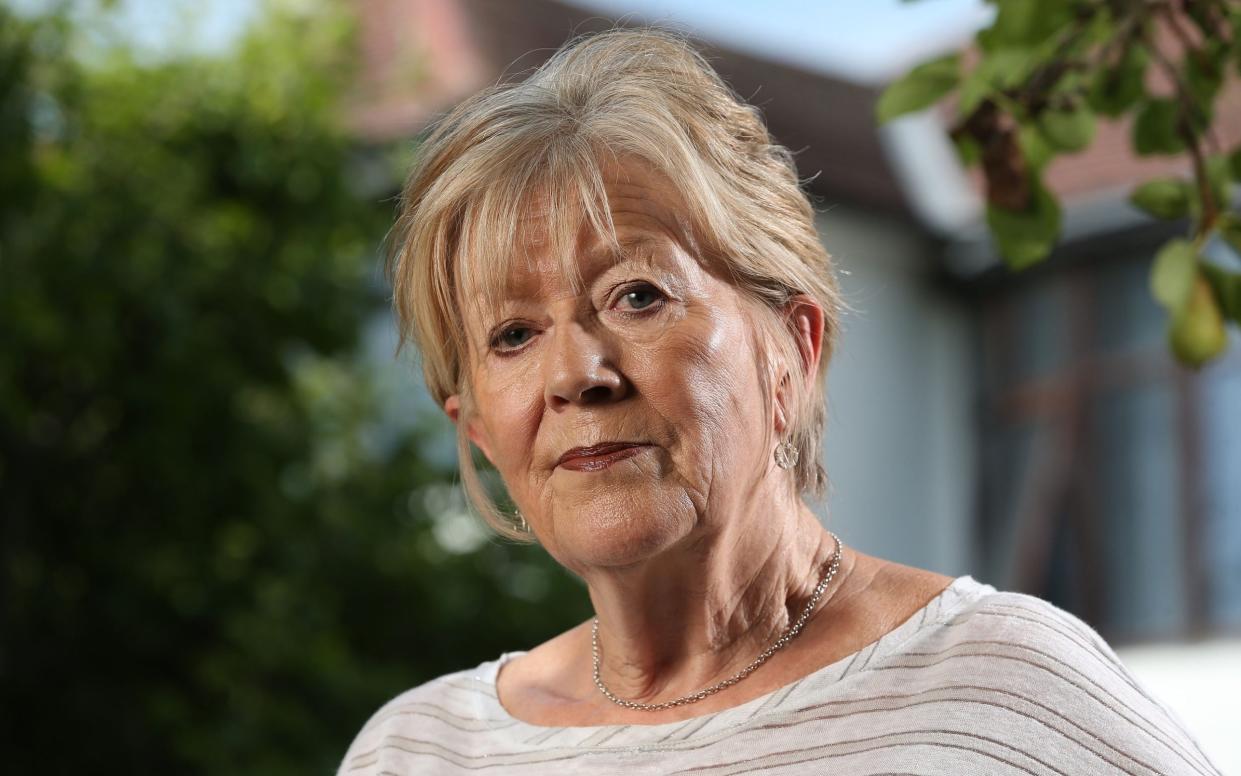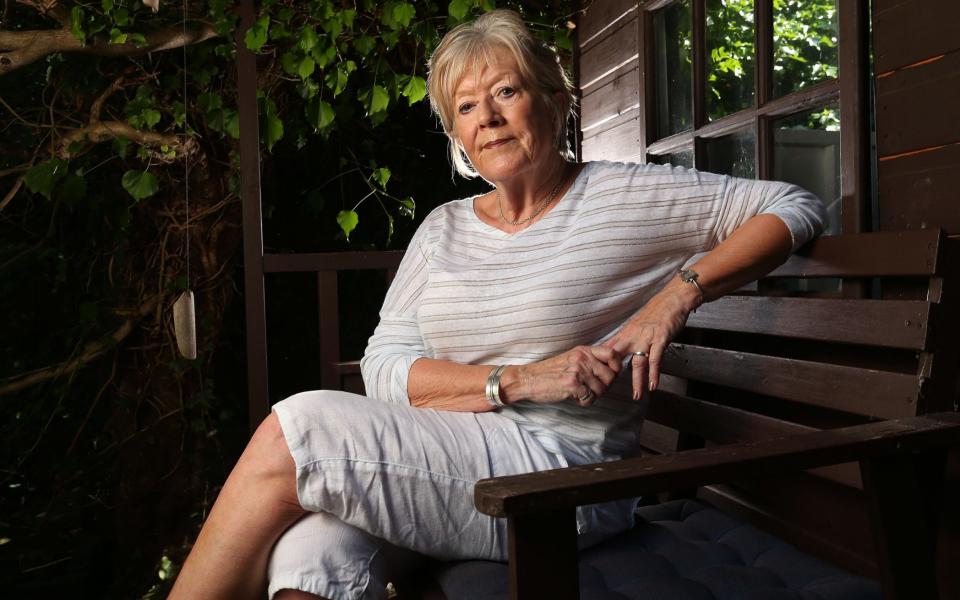I was forced to give my baby away at 16 – now, for the first time, I don’t feel ashamed

Jill Killington, 72, lives in Leeds with her husband, Richard, 76. A retired university administrator, she was forced to give up her first baby, a boy, for adoption in 1968. She has two other children, a son and daughter aged 47 and 46.
The very last time I held my baby son was in a dingy room at the National Adoption Services headquarters in London, in March 1968. My parents had brought us down on the train and on arrival we were shown straight there.
A few minutes later, a social worker came in, admired my son and asked if she could hold him. Flattered, I handed him over, unaware that I would never again feel his weight in my arms. Then she asked me to kiss him goodbye, before walking out of the door with him. She never came back. I sat in that room in silence, until we were told it was time to go home. I was so numb that I couldn’t cry.
For more than half a century, I have felt the shame of being an unmarried mother, forced to hand my beloved baby over for adoption. The joint committee on human rights (JCHR) estimates that 185,000 children were taken from their mothers between 1949 and 1976 and now, with the publication of its report, which calls on the Government to issue an apology to women like me, I feel absolved.
It’s not just the apology that matters: it’s admitting that we were vilified, mistreated, shamed and that our right to family life was violated. For the first time in my life, I no longer feel ashamed.
I was 16, and at college in my hometown of Norwich, when I became pregnant. From the start, I was made to feel ashamed. The GP said “You’ve been having fun and games with the boys,” which wasn’t the case. I was in a steady relationship with my boyfriend. Although I was nervous about telling him, he was delighted and wanted us to get married.
But we needed parental consent to get married and our parents were dead set against this. They were Methodists and thought of themselves as “respectable people”; they said the best thing would be for the baby to be adopted.
Once this was decided, I never saw my boyfriend again. I was devastated. We’d been planning a future together and suddenly he disappeared from my life.
‘I had no say over my own life’
Throughout my pregnancy I harboured the hope that, once the baby was born, he might come back. I did get a card asking if the baby had been born, and a bouquet of flowers from his parents, but it was made clear that there was to be no further contact.
I heard he’d left home and I didn’t know where he’d gone, or how to contact him. My close friends were supportive but we soon drifted. I was pregnant, so I couldn’t go out to discos.
Although I dearly wanted my baby, my parents said they would not support me and they weren’t willing to let me live in their house with the baby. I had lost all my confidence and didn’t fight the decision. What was the point?
In retrospect, I think I was probably depressed. And I couldn’t possibly have managed to find alternative accommodation, a job and financial support without help.
We went to visit a mother and baby home and it was a dark, sombre place, full of miserable-looking, young pregnant women scrubbing floors as if they were in a workhouse.
I was so upset by this that my parents agreed not to leave me there. But I had to hide upstairs when people came round, and wear a wedding ring whenever I went out. Despite this, I felt a bond with my baby immediately.
When he kicked inside me, I felt comforted, knowing he was safe there, that it was me and him against the world. I treasured those moments.
The adoption was arranged through the Church Army via the National Adoption Service. I was never once asked if I wanted to go ahead with it. It was a fait accompli. I had no say over my own life and was given no advice or options. Resigned and numb, I went through the motions.
My son was born in West Norwich Hospital on 15th December 1967. I gave birth alone. I was given gas and air, but the staff were rude and abrupt to me and it was obvious they disapproved.
One particular nurse was cruel. She criticised everything I did, ticking me off loudly in front of everyone. When my baby wet his clothes, she wouldn’t bring me fresh ones, making me dry the urine-soaked babygro on the radiator.
The baby wasn’t treated nicely either, because there was also a terrible stigma of illegitimacy. He was given tests for syphilis; the married mothers’ babies didn’t endure that.
I stayed in hospital for 10 days with my baby in a crib beside the bed. I tried to give him a lifetime’s worth of love and attention in those 10 precious days, rocking him in my arms and telling him I would always love him.

On Christmas Eve, we were discharged. My parents took me and my baby straight from the hospital to a foster home by car. I was inconsolable after leaving him there, in such a state that my mum contacted the foster mother and she was kind enough to let me visit my baby. It felt lovely taking him for walks in his pram.
But I knew the adoption date was looming. Everybody – my parents, social workers and doctors – kept telling me I was doing the best thing for the baby and that I’d get over it and get on with my life, as if nothing had happened.
In February 1968 I was told a family had been found. All I knew was that they already had an adopted son – an elder brother for my baby – a nice home and respectable jobs.
I had given my son an Irish name, Liam, and I recall that the adoptive parents were very concerned that my baby didn’t have Irish blood. There was a lot of anti-Irish racism at the time. I knew his name would be changed when they took him, as was the recommendation then.
After I handed over my baby in that dingy room in London, I was in a state of shock. I remember crying for days, yet my parents never brought up the subject again. I was never asked how I was feeling or how I was coping.
I received several short letters describing my son’s progress and two photographs of him in his adoptive parents’ garden. After that, there were no further updates. In those days, there was no way of having contact with your adopted child and they couldn’t contact you either. I believed I would never see him again.
Somehow, I got on with my life, going to work at the Inland revenue and later in hospital and university administration. Six months after the adoption, I met my husband, Richard, the brother of a school friend, and we got married and moved away from Norwich.
He knew about the baby and it didn’t bother him. But I was a changed person: more closed, more wary. The older my son got, the more it seemed to affect me, especially on his birthday or at Christmas.
I had two more children, and told them they had a brother out there somewhere, but every December 15, his birthday, I shed silent tears.
‘My trauma has echoed down through the generations’
When it was coming up to his 18th birthday, with new laws in place, I put my name on the national contact register – a register for birth parents and adopted children who were happy to be contacted, which I’d read about in a magazine agony column.
Nine years went by and then, one day, I came home from a holiday to find a letter on the doormat with a New Zealand postmark.
I knew instantly, instinctively, that the letter was from my lost son. Since then we have established a very close relationship, keeping in constant contact, first through letters and then emails. We have supported each other emotionally.
We met, at last, in December 1994 when I travelled to see him in New Zealand. Our bond was immediate – there was an instant sense of recognition, like I was looking at a male version of myself.
We couldn’t stop staring at each other. The first thing he said to me, after we’d hugged, was: “Now I know where I got my blue eyes from.” He looks just like my other son.
Although Ian – the name he was given – had a happy childhood, the adoption has left its impact on him too. He says he always felt there were gaps in his identity, secrets, and he used to fantasise about his birth family. Now he feels complete.
You can never replace a child lost through adoption and this is not something I will ever recover from. I’ve felt terrible guilt and emotional insecurity throughout my life.
Once, when I lost a job, the pain and my depression were so overwhelming and out of proportion that I realised that loss had tapped into a far deeper one – my son.
It’s affected subsequent relationships too – I tend to keep people at arm’s length. And my trauma has echoed down through the generations.
When my daughter had her own baby, she became terribly emotional, saying: “How could they make you do it, Mum?” With every birth in the family, there is pain and sadness mixed in with the joy.
I’ve had some counselling, but the best help has been from the PAC-UK, an adoption support agency, and their support group.
Some people still don’t understand that I had no choice in what I did. I didn’t “give up” my baby; I was coerced. That’s why a Government apology would mean so much.
As told to Hilary Freeman


